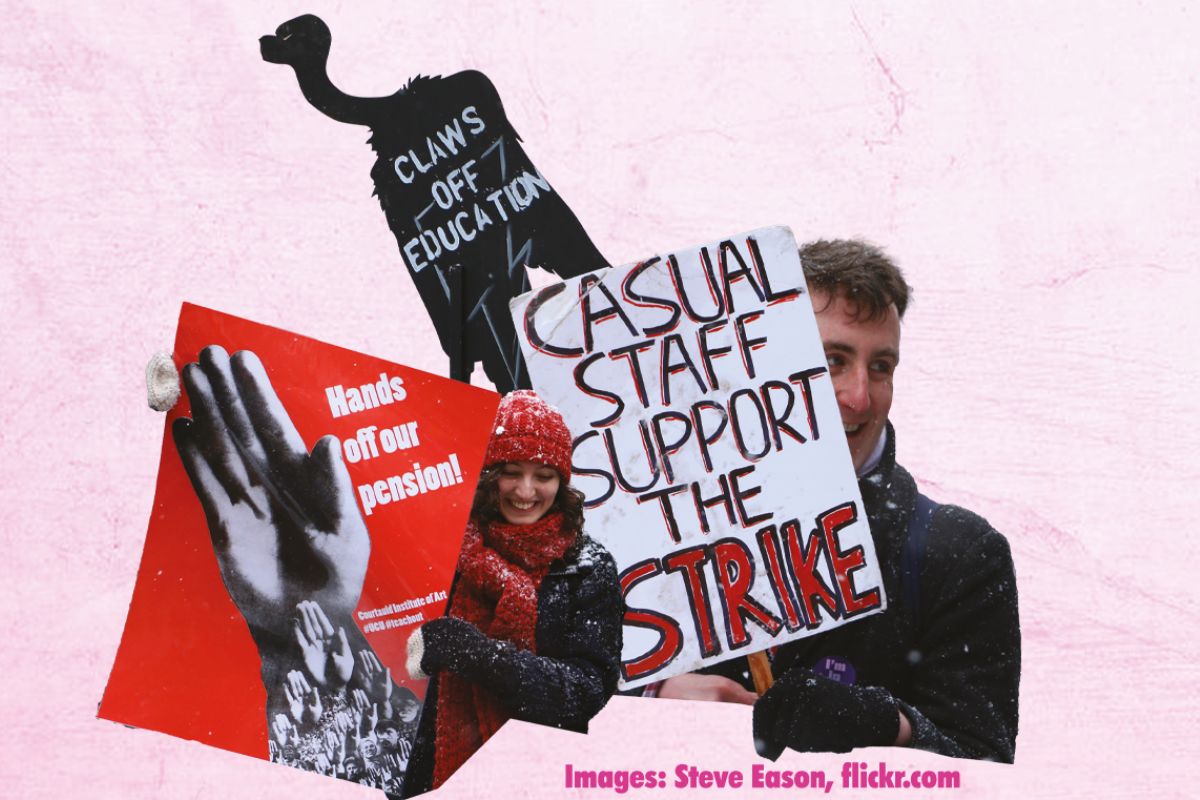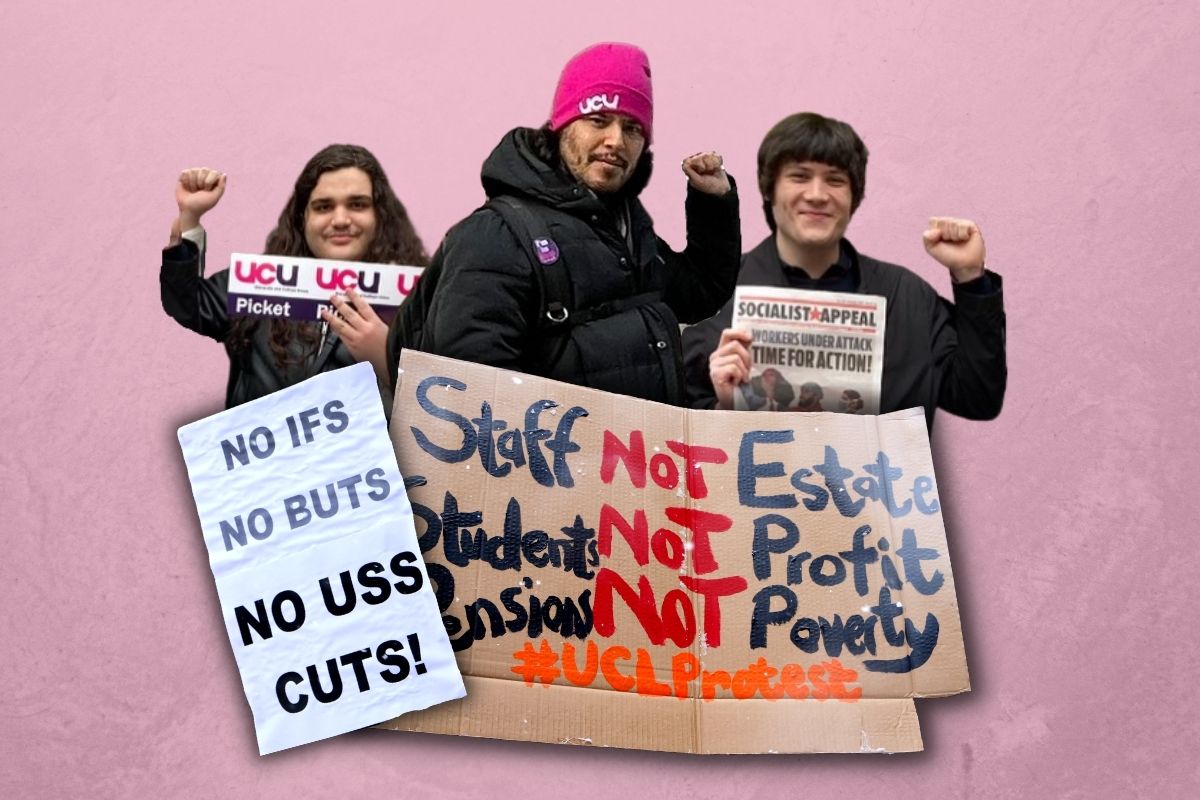Nationwide strike action across UK universities begins tomorrow, as UCU members continue their struggle over pay, pensions, and conditions. With workers and youth everywhere mobilising, the time is ripe for a militant united fightback.
Tomorrow will see the first of three days of the biggest national action to ever hit UK universities, as UCU members in higher education strike together across the country.
This latest walkout will involve over 70,000 university staff at 150 universities, with strikes on 24, 25, and 30 November over pensions, pay, and conditions.
These events are taking place in the context of a UK university sector that generated a record income of £41.1 billion last year, with vice-chancellors collectively earning an estimated £45 million.
At the same time, 12 years of below-inflation pay offers have left staff 20% worse off on average. And this is only set to get worse, with prices officially rising by a four-decade high of over 11% in October.
On top of this, we have seen a wave of course and department closures in the past two years, resulting in hundreds of job losses.
Those left behind will see their already-strained workloads pushed to breaking point. And for many, a question mark hangs over their future, with a proliferation of temporary contracts forcing staff to reapply for their job every year.
This degradation of workers’ pay and conditions must end.
From bad to worse

UCU members have been fighting for four years against the effects of marketisation – policies that have been forced on the sector by successive Tory and right-wing Labour governments.
This situation has gone bad to worse, with a revolving door of four Tory education secretaries in the past four months, each stumbling over the last to slash funding even further, whilst encouraging university bosses to push the costs onto staff and students.
These university strikes are qualitatively different to others seen in recent years. This time, the UCU is taking action amidst a thundering strikewave, which has brought huge layers of the working class into struggle.
Rail workers, bin workers, posties, dockers, barristers, and bus drivers have been leading the charge. Nurses and civil servants across the country have also voted to strike. And they could soon be joined by other NHS workers and school staff.
These are not isolated fights.They represent a common struggle: against cuts and austerity; against privatisation and marketisation; and for a decent and dignified life for the whole of the working class.
Coordinated action

Importantly, the trade union movement is beginning to link its battles.
At the TUC Congress this year, for example, a composite motion – backed by Unison, Unite, PCS, BFAWU, and POA – was passed unanimously, calling for the formation of a working group to coordinate a mass campaign of action over pay and conditions.
And the UCU, CWU, and rail unions are already synchronising strike days – including with this month’s round of action.
Other campus unions are also mobilising, with staff organised in 19 Unison university branches and 10 Unite branches set to join UCU members on the picket lines this week and next.
Students, meanwhile, are becoming more radicalised and politicised than ever, with their hopes of a stable and secure future ripped away by the decay and decline of British capitalism.
The youth of today will be the workers of tomorrow. They are natural allies of the organised working class.
The Marxist Student Federation, with a presence at over 50 campuses, will therefore be throwing its weight behind all these strikes, helping to forge solidarity between students and workers in this united fight against the Tories and the bosses.
Militancy pays

Given these developments and conditions, the opportunity exists for the UCU to fight with confidence and audacity.
Dock workers in Liverpool, amongst others, have won inflation-busting wage rises by taking determined action, showing that militancy pays.
Rather than repeating the previous strategy of successive escalation, which failed to push the employers, the UCU must utilise the momentum of its successful national ballot, and coordinate with other unions, in order to strike hard and strike decisively.
UCU general secretary Jo Grady has put forward the perspective of ‘sustained’ action commencing in February next year, when all branches will have started teaching.
This is exactly the right attitude and approach. But let’s give it a clear name: indefinite strike action. No return to work until our demands are met!
The UCU has the opportunity to lead university unions in shutting down campuses, going on the offensive, and shattering the marketisation of higher education once and for all. We must seize this moment, and rise to the challenge.
- Victory to the UCU!
- Students and workers: unite and fight!
- For mass coordinated action to topple the Tories and their system!






